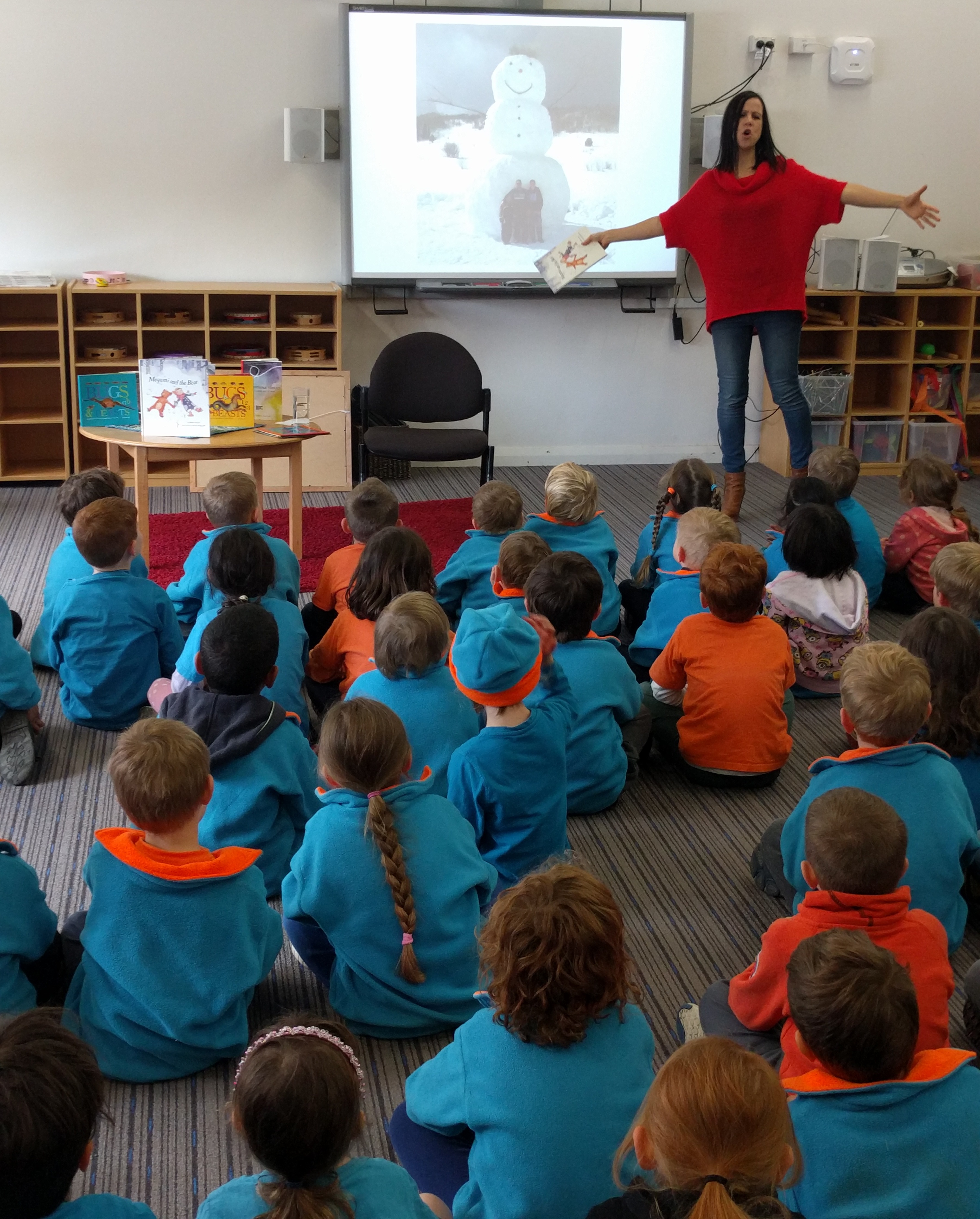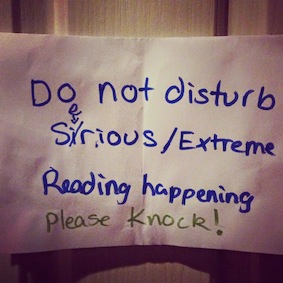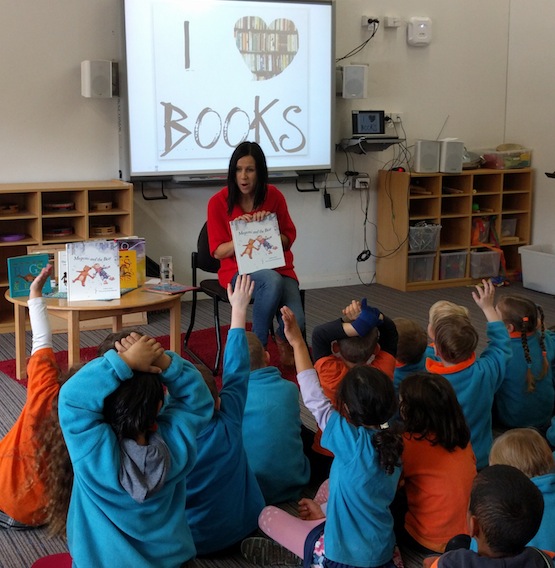On reading and the ACT Chief Minister’s Reading Challenge
One of the cool things about being Ambassador for the ACT Chief Minister’s Reading Challenge is that you get an extra excuse to do school visits. Last week I headed out to Southern Cross Early Childhood School to meet a bunch of Kinder students. Let’s face it, Kinder is the most adorable school age, and these kids were so enthusiastic about books and reading that it made my heart sing.
things about being Ambassador for the ACT Chief Minister’s Reading Challenge is that you get an extra excuse to do school visits. Last week I headed out to Southern Cross Early Childhood School to meet a bunch of Kinder students. Let’s face it, Kinder is the most adorable school age, and these kids were so enthusiastic about books and reading that it made my heart sing.
Chatting to their executive teacher afterwards it was pretty clear why. The school’s approach to teaching their kids to read is to use as much ‘real literature’ as possible (as opposed to just home readers), and to let the kids choose whatever they want. No limits. The teacher shared that one child who is struggling to read, desperately wanted to borrow a chapter book and was then so thrilled with herself when she could correctly identify some of the words. She was reading a chapter book!
There are two things that I love about this. Firstly, mention home readers to any group of parents and teachers and a collective groan will erupt. The home readers most schools have are years old and deathly boring. They have no plot, two-dimensional characters, insipid illustrations and dull subject matter. Nothing to engage a child on any level. They send children the message that reading is boring, or worse, sheer hard work. For the children who have a home life that is rich in exciting reading experiences they will no doubt come out the other side of home readers. But for many children home readers, at that very crucial formative stage, come to define the reading experience.
Read More »On reading and the ACT Chief Minister’s Reading Challenge
The second thing that I love about Southern Cross’ approach is that they don’t tell the children what they can and can’t read. I am a firm believer that children should be allowed to read whatever interests them. If they only want to read comics or manga or books about zombies, that’s totally fine. As soon as you tell a child that they can’t or shouldn’t be reading what they are interested in, you run the risk of damaging their relationship with books.
 There was a time when my daughter obsessively read the Geronimo Stilton series and another series about fairies (the name of which it seems I have deliberately blocked from my memory). This was at a time when I still read to her (now she is 12 and will not be read to, thank you very much), so this meant that I got to share in this never-ending stream of awfulness. But I never let on, because she loved them. She is still a voracious reader (witness the sign she recently posted on her bedroom door during a weekend session, with spelling corrected by her younger brother who clearly has the editor gene). Some of her book choices resonate with me, others don’t. But they are her choices. And that’s important.
There was a time when my daughter obsessively read the Geronimo Stilton series and another series about fairies (the name of which it seems I have deliberately blocked from my memory). This was at a time when I still read to her (now she is 12 and will not be read to, thank you very much), so this meant that I got to share in this never-ending stream of awfulness. But I never let on, because she loved them. She is still a voracious reader (witness the sign she recently posted on her bedroom door during a weekend session, with spelling corrected by her younger brother who clearly has the editor gene). Some of her book choices resonate with me, others don’t. But they are her choices. And that’s important.
When my son was in Year 3 he desperately wanted to borrow books from a shelf that was forbidden because it was for the senior students. The well-meaning school librarian told him that these books were above his comprehension level and tried to direct him to a range of other ‘more appropriate’ books, all of which he thought were ‘boring’. Every week he came home with ‘appropriate’ books that he didn’t read. The forbidden books were by authors like Andy Griffiths and Morris Gleitzman, and we had already read most of them at home. These books were most definitely not outside of his comprehension level, but even if they were that would have been okay. He would have made the choice himself to put that book down and move on to something else. As it was, after several emails he was granted access to these books, though the other children weren’t.
 The worst thing we can do is to censor our children’s choices. When we tell children that they are only permitted to read a certain kind of book that doesn’t appeal to them, we run the risk of turning them off books completely. I liken it to me being prevented from reading anything but Dan Brown novels. Pure torture! If Dan Brown was the only thing on offer, I’d never read again. He is my version of a home reader.
The worst thing we can do is to censor our children’s choices. When we tell children that they are only permitted to read a certain kind of book that doesn’t appeal to them, we run the risk of turning them off books completely. I liken it to me being prevented from reading anything but Dan Brown novels. Pure torture! If Dan Brown was the only thing on offer, I’d never read again. He is my version of a home reader.
Many schools are adopting the same kind of approach as Southern Cross, but there are still many more that aren’t. We need children to associate books with pleasure. And what we now know is that children who read for pleasure do significantly better at school than their peers who don’t (Melbourne University study, 2013). We also know that the single most important indicator of how well a child will do at school directly correlates to the number of hours that they were read to as a toddler. So books are absolutely fundamental. Thank goodness for initiatives like the Chief Minister’s Reading Challenge which puts a spotlight on books as fun and exciting places to be.
Kids need (good) books. They allow kids to dream big and make new discoveries and go on adventures and grow their imaginations. As adults we need to find ways to get books into kids’ hands as often as possible.